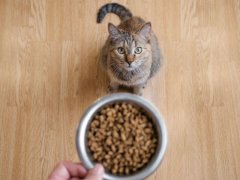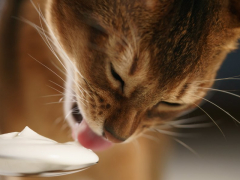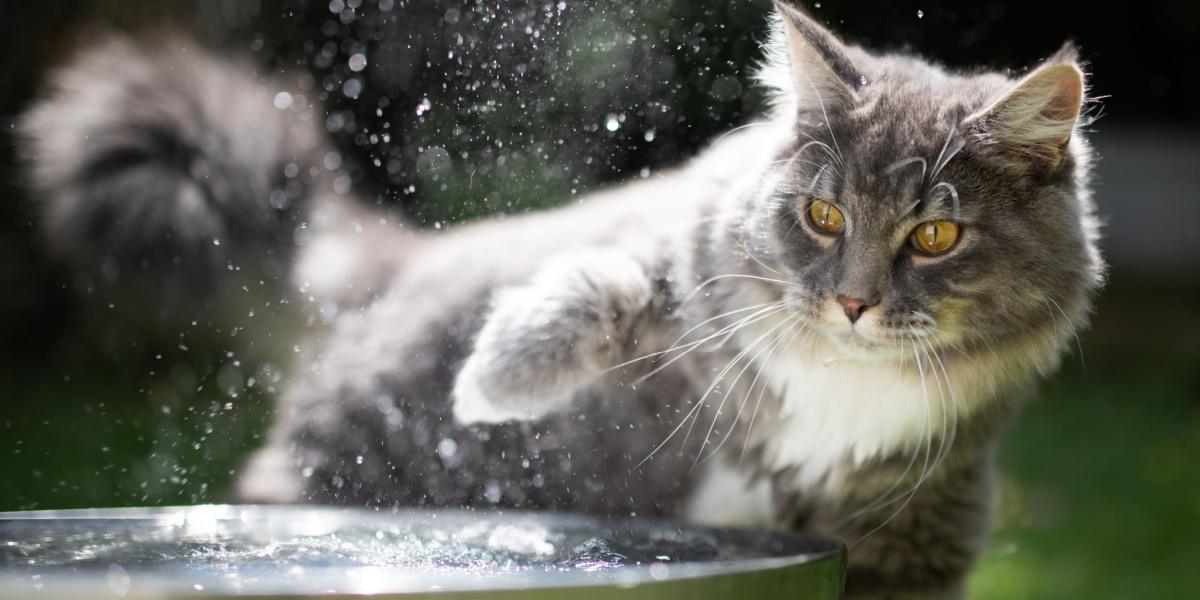
It’s second nature for cat owners to provide their pets with a bowl of fresh water, but if you didn’t, your cat might find an alternative water source. It might surprise you to know that cats actually cope with drinking sea water—far better than humans do. This is due to certain adaptations in a cat’s kidneys that allow them to drink salt water without causing health issues.
That said, it’s best for domestic cats to drink fresh water. Drinking saltwater should only be done in moderation. Large amounts of salt can certainly affect a cat’s health. Read on to find out how cats are able to drink small amounts of saltwater safely.
Can Cats Drink Saltwater?
Our modern-day housecats are descended from African wildcats, which lived in arid conditions where finding enough water to survive could be difficult. These early cats therefore adapted, and were able to absorb most of their water requirements from food, eating natural prey with a high water content such as birds and rodents, to maintain hydration.
However, cats still require some form of water, and fresh, clean water wasn’t always available on the African plains, which meant that these cunning cats often had to use saltwater pools as their drinking source.
Their kidneys adapted, and over time cats developed an excellent renal capacity that allows them to concentrate their urine much more successfully than other mammals—including humans—and to filter out excess salt. An early study showed that cats can use salt water, alongside their food, to survive if other types of water are absent.
But how does this apply to our current domestic cats? Our much-loved pets are usually fed on wet or dry commercial cat food and provided with a fresh bowl of water. Could they drink salt water, too? Well, it has been shown that cats can rely on their food to provide their entire hydration needs, and a cat fed on wet food might rarely use their drinking water.
However, if the food is partially dried, cats can use salt water to provide extra water. With modern-day dry foods, the water content is very low, and a cat may have to drink a lot of salt water to provide adequate hydration, so they run the risk of ingesting a very high amount of salt.
Is It Good For Cats To Drink Saltwater?
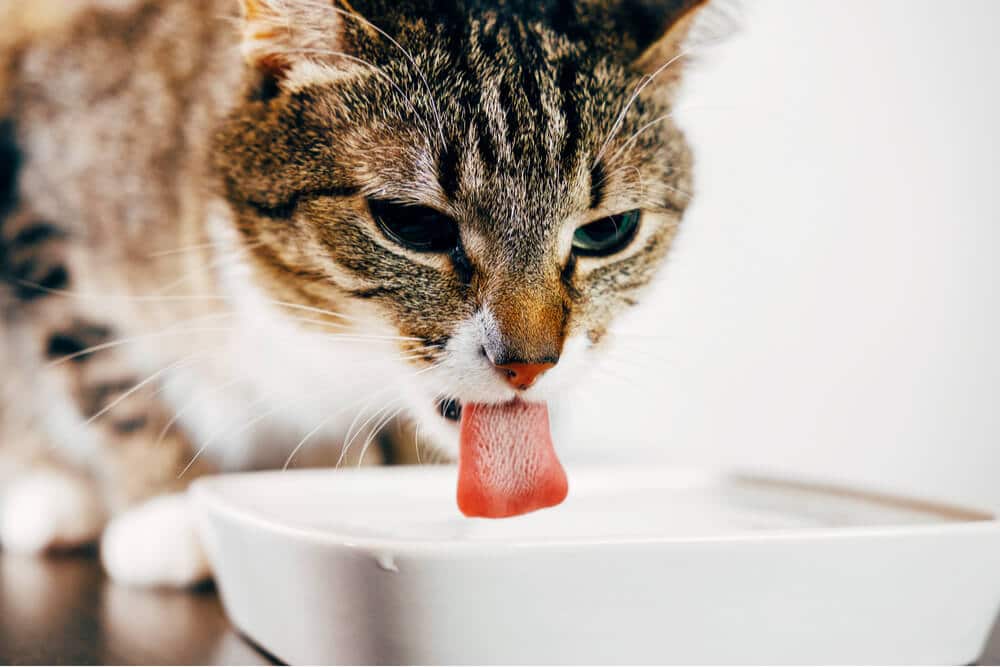
Although cats can drink small amounts of salt water in order to survive, it’s best if they drink fresh water.
We know that cats can use salt water to remain hydrated, alongside dietary intake of water. However, is it actually good for them? As you may expect from the name, salt water has a high salt content, as well as other nutrients such as nitrogen and phosphorus.
Too much salt water can excessively raise a cat’s salt intake, causing health problems. Salt poisoning occurs when a cat’s sodium levels in the blood become very high (called hypernatremia), leading to dangerous imbalances in essential electrolyte concentrations.
Symptoms include excessive thirst, vomiting and diarrhea, incoordination, tremors, seizures, and even coma and death.
It is difficult to quantify exactly how much salt water would be needed to cause salt poisoning. Pure salt (sodium chloride) can cause problems in even small quantities, but salt water is less problematic, especially if your cat has access to wet food or a source of fresh drinking water.
There is no need to deliberately provide salt water for your cat, as there is no evidence that it improves health, only that cats can survive by drinking salt water alongside their food if they need to.
Commercial cat diets will provide all of the salt content, minerals, and electrolytes that cats need, in the correct proportions. Cats are very good at concentrating their urine and also have a low thirst drive, which means they don’t feel the need to drink very often. This is especially true if a cat’s diet is wet. They will only drink salt water if needed for survival, rather than to thrive.
What Should My Cat Drink?
Cats can drink many types of water, from plain tap to bottled or freshwater sources. Alkaline waters should be avoided. Cats’ low thirst drive and high renal concentrating ability means they have fewer requirements for water than some other mammals, but they should always have access to a clean, fresh water source.
Cats eating a dry diet will drink markedly more water than those on a wet diet, as cats are very good at extracting their water needs from food. Cats can drink other suitable liquids, such as cat milk or broth, but clean water is all they really need.
If you notice your cat suddenly drinking more than usual, it is advisable to seek veterinary advice. Some medical conditions, such as urinary problems, kidney disease, hyperthyroidism, and diabetes can all cause excessive thirst.
If your cat seems to be continually seeking out saltwater, such as a swimming pool or saltwater fish tank, check that their usual water bowl is accessible with clean water constantly replenished, and then speak to your veterinarian, as your cat might have a medical or nutritional concern.
Also Read: 8 Best Cat Foods For Urinary Tract Health
Saltwater And Cats: Final Thoughts
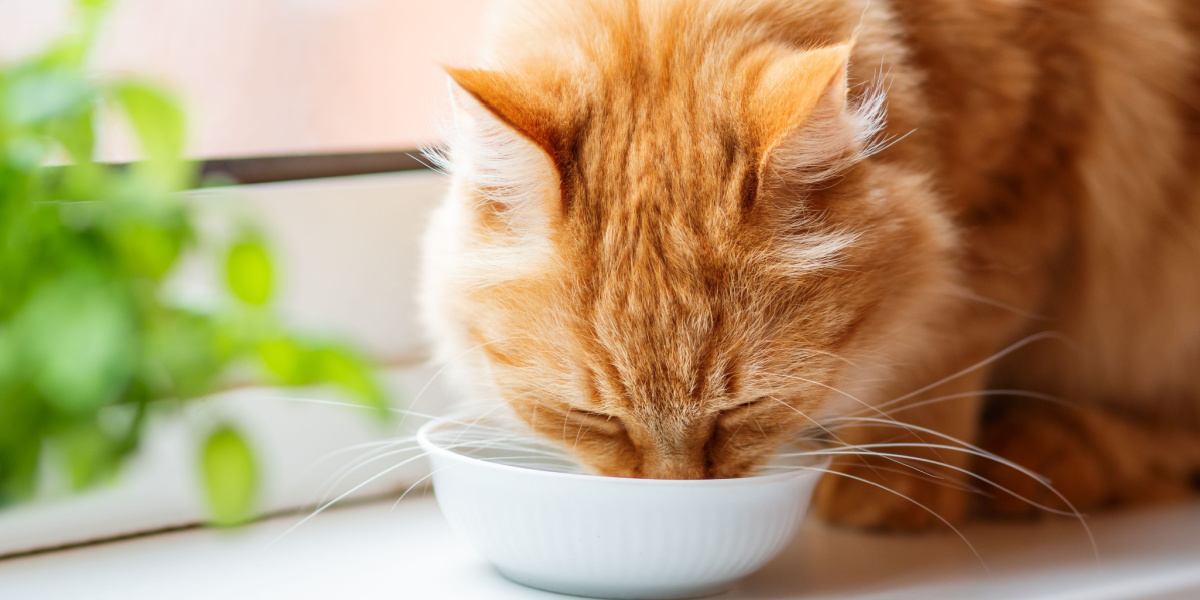
A few licks of saltwater likely won’t harm your cat, but their regular drinking water should be fresh water.
Cats have highly adapted kidneys and can process saltwater as a means of hydration if necessary. It remains recommended to provide normal water as your cat’s water source, alongside a suitable diet. However, there is equally no need to panic if you see your cat occasionally drinking from a saltwater source such as a saltwater swimming pool unless they appear unwell or distressed.
Also Read: Dehydration In Cats: Symptoms, Causes, Diagnosis & Treatment
Related Conditions
- Kidney disease
- Diabetes
- Hyperthyroidism
-
V. Wolf, Phoebe G. Prentiss, Lillian G. Douglas, and Russell J. Swett (1959). Potability of sea water with special reference to the cat. American Journal of Physiology.
